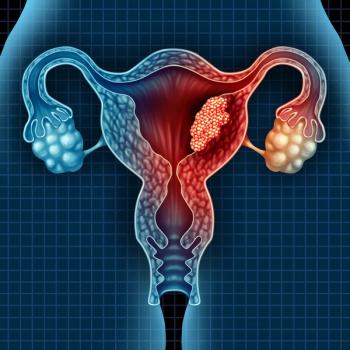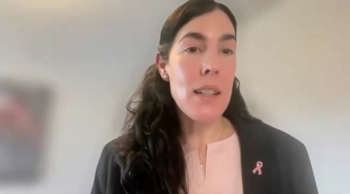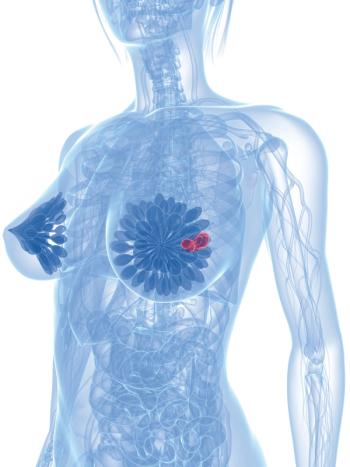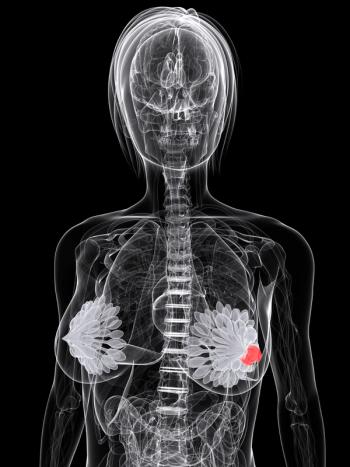
The KEYLYNK-001 trial found improved PFS among patients with advanced ovarian cancer given pembrolizumab/olaparib.

Your AI-Trained Oncology Knowledge Connection!


The KEYLYNK-001 trial found improved PFS among patients with advanced ovarian cancer given pembrolizumab/olaparib.

Combining zimberelimab with lenvatinib produced a manageable safety profile among patients with advanced cervical cancer in a phase 2 trial.

Although there was no statistical significance in survival data, afuresertib/paclitaxel improved PFS vs paclitaxel in patients with the pAKT biomarker.

Cadonilimab plus lenvatinib appeared to have a manageable safety profile in a phase 2 trial.

Despite similar 36-week results, chemoradiation showed a statistically significant difference in QOL scores at 3 and 7 weeks vs radiation therapy alone.

Adding maintenance olaparib to durvalumab/chemotherapy in pMMR endometrial cancer improved PFS among those with detectable ctDNA at baseline.

Second interim analysis results from the KEYNOTE-A18 trial show continued efficacy of pembrolizumab/CCRT in those with locally advanced cervical cancer.

Endocrine therapy as a treatment for breast cancer showed similar long-lasting physical health decline data as what was seen in women who did not have breast cancer.

Carfilzomib, lenalidomide, and dexamethasone results from the real world continued to show effective responses and a tolerable safety profile.

As artificial intelligence has arrived in the oncology field, experts discuss how this new technology can have implications for transforming clinical practice.

Learn how COVID-19 impacted oncology practice from the uptake of telehealth to delays in screening, with key takeaways from leading oncologists.

Liso-cel has been approved by the European Commission for the treatment of adult patients with follicular lymphoma who received 2 or more prior lines of systemic therapy.

“The better the systemic therapy, immunotherapy, or targeted therapy, the more important a non-invasive, local treatment will be,” James B. Yu stated.

Results from the CheckMate649 trial support the use of nivolumab plus chemotherapy in the treatment of advanced gastric cancers.

The trial was terminated early due to no statistical significance observed between durvalumab and cetuximab for patients with head and neck squamous cell carcinoma.

Clinical guidelines aimed at both clinicians and patients seek to educate and include both parties in clinical decision-making processes.

The 2025 SGO meeting will feature readouts of potentially impactful trial data in ovarian cancer, cervical cancer, and other gynecologic malignancies.

Based on positive safety data from the third cohort, a safety review committee approved the opening of a fourth cohort as well as more enrollment into the third cohort.

Leading multidisciplinary oncology professionals look back at how the COVID-19 pandemic changed cancer care.

As a radiation oncologist, James B. Yu, MD, MHS, FASTRO, works with urologists, medical oncologists, radiologists, pathologists, physicists, and health services researchers.

Retrospective data may offer actionable guidance for clinicians treating patients with non–small cell lung cancer and brain metastases.

Testing AI-powered tools globally across diverse patient groups may ensure that they are accurate and consistent for all patients.

The safety profile of vepdegestrant in ER–positive/HER2– breast cancer was consistent with its observed profile in previous studies.

Use of Deep-IO may help refine treatment precision and identify patients with advanced NSCLC who are likely to benefit from immune checkpoint inhibitors.

The OSE2101 cancer vaccine plus FOLFIRI chemotherapy demonstrated positive survival data with minimal toxicities in the phase 2 TEDOPaM trial.

In patients with small cell lung cancer, Lambert-Eaton myasthenic syndrome leads to muscle weakness and can be discovered with no-cost testing such as anti-VGCC antibody testing.

Despite a relatively small, though increasing, level of focus in oncology, radiation-induced heart damage in breast cancer is a relevant clinical problem that needs more attention.

In patients with low-grade intermediate-risk non-muscle invasive bladder cancer who achieved a CR at 3 months with UGN-102, the 18-month DOR was 80.6%.

A multidisciplinary care approach should be utilized when discussing sexual health with survivors of breast cancer.

The test led to a modification in treatment plan for 48.1% of those with stage I to III HER2-positive breast cancer, 73.5% of which were reductions.